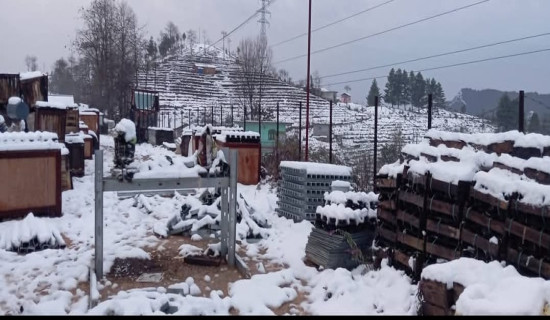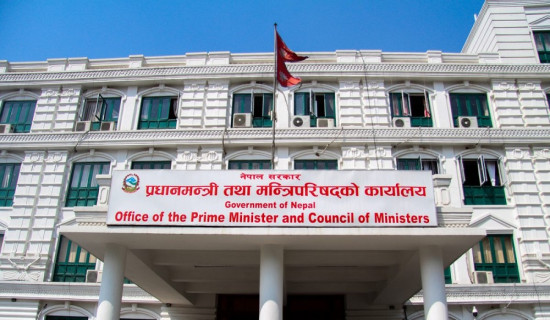- Saturday, 24 January 2026
Understanding Political Ecology Of Health
In human history, there is growing evidence of complex relations between people and their environment. People’s contact with land, plant, water, animals and environment have profound impacts on their health and social well-being. In the ancient times, the hunter-gatherers were solely relying on plants and animals. It is interesting to explore how human societies create and change geologies, climate, and their environment.
Undoubtedly, there is a dynamic relationship between the human organism and its natural and social environment across space and time. The ways people are shaping their environment are interestingly instrumental not only in transforming their social, cultural, economic and political life, but also harnessing ecological and environmental resilience in diverse contexts. Thus, the adaptive mechanisms and responses are socio-politically and culturally constructed in local ecosystems.
Ecosystem approach
Given ecosystem approach to health, sustainable ways of human life are diverse. Because competing yet intersecting challenges of globalisation, climate change, air pollution, migration, urbanisation, and pandemics such as COVID-19 have adverse impacts on human health. Therefore, emerging trend of focusing on social, cultural, economic, political and historical dimensions of human interactions with environment are notably significant in harnessing human health.
In the recent years, the social dimensions of human health care receiving high priority. The practice of political ecology of health can be manifested while incorporating the insights of medical anthropology, health and illness narratives and history of medicine within and across cultures. More importantly, political ecology of health deploys diverse theories and methods in the context of political economy, contemporary social discourse, social origin of disease and human health. The political ecology of health has a new focus on medical geography. This provides a conceptual and analytical framework to explore and better understand the complex relationships between political, social and economic factors and their differential effects on human health.
In the policy arena, there are still limited discussions of political ecological approach to human health in many low-income countries. The interdisciplinary approach to tackle existing disparities in health care must receive high priority in policy dialogues and strategic interventions at all levels. These perspectives help explore historical, cultural, economic and socio-political domains of local contexts that drive human agency, health, environment and social well-being at local and global levels.
In addition, the growing burden of both communicable and non-communicable diseases and issues of inequitable access to essential health care services reveal that reducing social inequalities must be the high priority agenda for health sector reform. From political ecology perspective, there are critical needs to harness universal health coverage, environmental justice, and effective political engagement for sustainability. In order to protect and promote the health of people and their communities facing environmental injustices, there needs serious consideration of how social, cultural, political and economic contexts are impacting on health seeking behaviour and decision making processes in accessing health care.
At the core, the political ecology of health is socially produced and historically determined. Moreover, the approach and process explore how political economy influences on human health. The new ways of looking at politics of universal health coverage, for example, provides pathways of change that better reflect changing context of human health in the world we live in. Aside from this, it draws attention of stakeholders to think of why health issues are becoming an international concern, and how global health diplomacy works.
Nepal’s health policy 2019 and strategic priorities have called for considering wider determinants of health for actions. However, the issues around political ecology of health are not sufficiently addressed yet in larger policy discourses. Neither are they effectively mainstreamed in local health policies and plans in the federal context. In part, it could be limited understanding and capacity of local governments in prioritising health in an inclusive and interdisciplinary approach. Moreover, the cultural aspects of health inequalities and environmental injustices are not comprehensively explored yet through the lens of political ecology.
Within political ecology of health, there is a clear need for more rigorous engagement with intersectionality to explore concretion of social and ecological factors that impacts on human health. More crucially, it is essential to investigate how socially, culturally, economically and ecologically marginalised communities are experiencing the burden of illness and diseases. Exploring how health and vulnerabilities are differentially constructed in the local context provide social evidence and rationale for socio-political as well as ecological and environmental resilience of the communities who are poor and socially excluded for adaptive responses. Thus, complexities of social and ecological systems must be assessed while developing national health policies or strategic plans for effective implementation.
Complexities
Policy makers and key stakeholders need to debate passionately the intersecting complexities of socio-political and ecological dimensions of human health by balancing economy, environment and human well-being. The interplay of power, nature and society are often overlooked in health sector. Still, there is limited understanding of the reasons and mechanisms behind health inequity, vulnerability, and social injustice at all levels. Using political ecology approach, we must first ask: Where is equity and social justice in health sector and why do people coproduce their health and environment?
Given bio-cultural and political complexities, the privatisation and commodification of health care have further worsened the marginalisation of poor and socially excluded populations in terms of accessing basic health care in many low-income countries. Furthermore, the behaviour and dynamics of political ecology provide avenue for exploring inclusive health governance and wider determinants of health for better health outcomes.
Bhandari is a health policy analyst.








-square-thumb.jpg)




-original-thumb.jpg)
